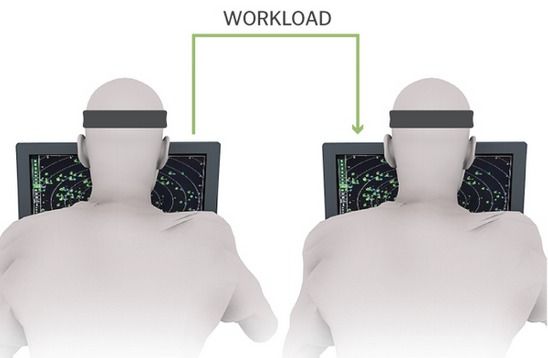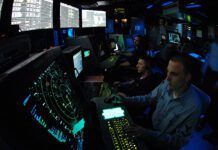
image: Tufts/Globe
Technology in development at Tufts University in Boston could detect when an air traffic controller’s over-tasked brain is nearing the saturation point and instantly redistribute the workload, according to a report this week in the Boston Globe. Computer scientist Robert Jacob and biomedical engineer Sergio Fantini are working together to create a headband that reads brain activity and transmits that data to a computer that can tell if the wearer is bored, fatigued or sharp. The computer could automatically distribute the workload to keep each controller working at peak efficiency. In tests conducted by the Tufts researchers, headband wearers increased their ability to safely navigate simulated airplanes by an average of 35 percent when the computer adjusted their workload based on their brain activity, compared to at random, according to the Globe.
Jacob and Fantini envision that the technology eventually could be incorporated into a simple wearable device, such as Google glasses. “Computers have gotten phenomenally better in the last 50 years — faster, more powerful — and humans haven’t,” Jacob told the Globe. “The bottleneck is now with the human, not the computer. So it’s important to put resources into communicating better with computers.” The device measures the amount of light absorbed by the brain, which increases as the workload increases.


































